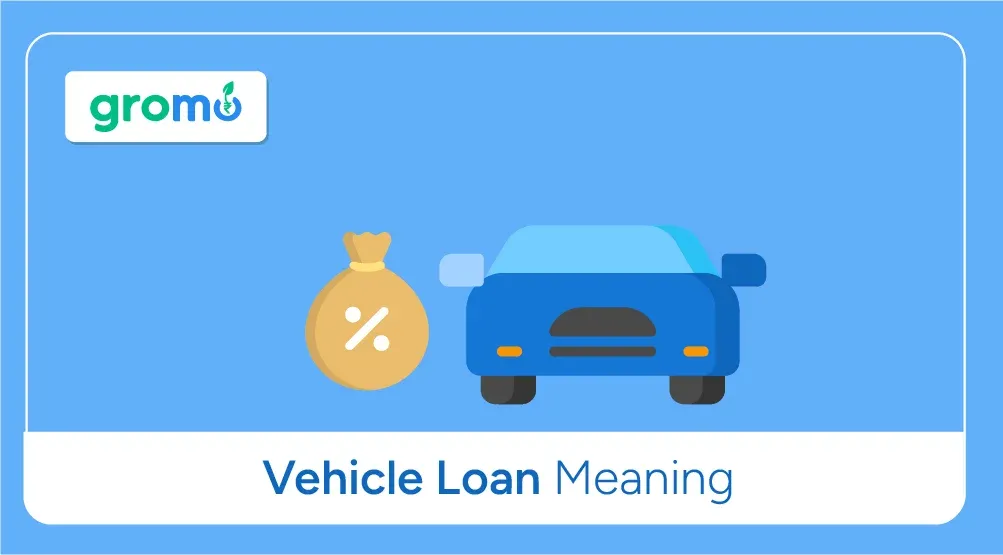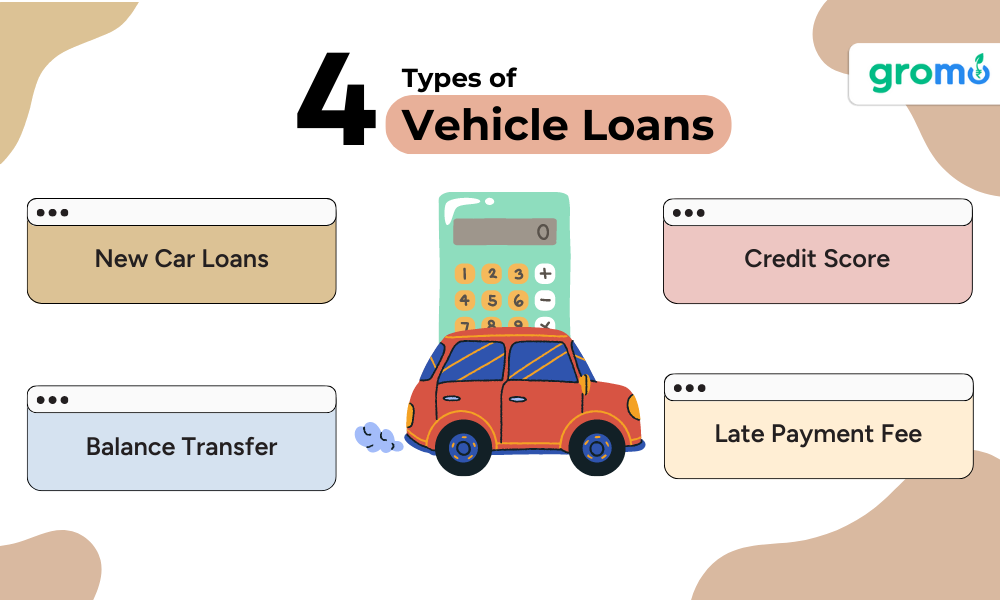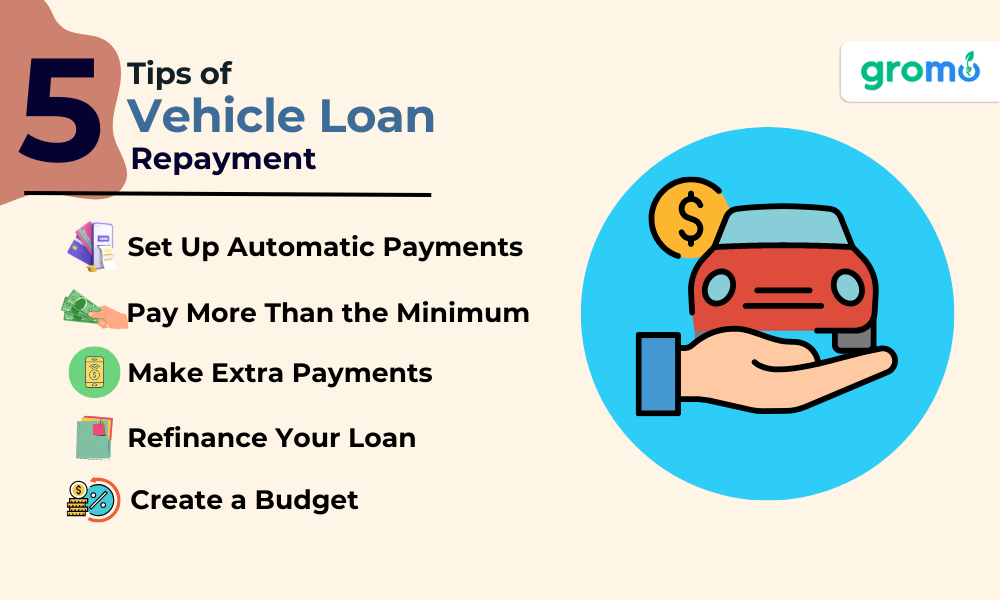Vehicle Loan Meaning: Guide To Understand Vehicle Loans
Introduction to Vehicle Loans Vehicle loans are a type of financing used by individuals and businesses to purchase a new or used vehicle.

Introduction to Vehicle Loans
Vehicle loans are a type of financing used by individuals and businesses to purchase a new or used vehicle. These loans are provided by banks, credit unions, and other financial institutions, with the vehicle acting as collateral for the loan. In this comprehensive guide, we'll explore the different aspects of vehicle loans, including their types, application process, and factors to consider when choosing the best loan for your needs.
Types of Vehicle Loans
There are several types of vehicle loans available, depending on the type of vehicle being purchased and the borrower's financial situation. Some common types include:
-
New Car Loans: These loans are specifically designed for the purchase of brand new cars, offering competitive interest rates and repayment terms.
-
Used Car Loans: These loans cater to the purchase of pre-owned or second-hand cars, with varying interest rates and loan terms based on factors such as the car's age and condition.
-
Commercial Vehicle Loans: Tailored for businesses looking to finance the purchase of trucks, vans, or other commercial vehicles, these loans often have different eligibility criteria and terms compared to personal vehicle loans.
-
Two-Wheeler Loans: These loans are designed for the purchase of motorcycles, scooters, and other two-wheeled vehicles, with terms and rates varying based on the type and cost of the vehicle.
Vehicle Loan Application Process
Applying for a vehicle loan typically involves the following steps:
Research: Compare different lenders, loan products, interest rates, and terms to find the best fit for your needs.
-
Pre-approval: Some lenders offer pre-approval, which allows you to determine your eligibility and loan amount before finalizing your vehicle purchase.
-
Application: Submit a loan application, providing required documentation such as proof of income, credit history, and personal identification.
-
Approval: If approved, the lender will provide a loan agreement outlining the loan terms, interest rate, and repayment schedule.
-
Funding: Once the loan agreement is signed, the lender disburses the loan amount directly to the vehicle seller, and you can take possession of your new vehicle.
Factors to Consider When Choosing a Vehicle Loan
Before applying for a vehicle loan, consider the following factors to ensure you make the best financial decision:
-
Interest Rates: Compare interest rates from multiple lenders to find the most competitive rate for your loan.
-
Loan Term: Consider the length of the loan term, as longer terms can result in lower monthly payments but higher overall interest costs.
-
Down Payment: Determine the amount you can afford as a down payment, as this can impact your interest rate and loan term options.
-
Fees and Charges: Be aware of any additional fees or charges associated with the loan, such as application, processing, or early repayment fees.
-
Credit Score: Your credit score can significantly impact your eligibility for a vehicle loan, as well as the interest rates and terms you receive. Maintain a strong credit history to improve your chances of securing favorable loan terms.
By understanding the different types of vehicle loans, the application process, and the factors to consider when choosing a loan, you can make an informed decision and secure the best financing option for your vehicle purchase.
Sell as many financial products as you want and earn with each sale.
Eligibility Criteria for Vehicle Loans
Lenders typically have specific eligibility criteria that borrowers must meet to qualify for a vehicle loan. Common eligibility requirements include:
Age: The minimum and maximum age limits may vary between lenders, but generally, applicants must be at least 18 years old and not older than 65 or 70 years at the end of the loan term.
Income: Lenders often require proof of a stable income to ensure the borrower's ability to repay the loan. This could include salary slips, bank statements, or tax returns.
Employment Status: Borrowers may need to be employed or have a steady source of income from self-employment, freelance work, or a business.
Credit Score: A good credit score demonstrates responsible credit behavior and increases the chances of loan approval with favorable interest rates.
Residential Status: Some lenders may require proof of permanent residency in the country or state where the loan is being applied.
Tips for Getting a Better Deal on Your Vehicle Loan
To secure the best possible deal on your vehicle loan, consider the following tips:
Improve Your Credit Score: Pay off outstanding debts, make timely bill payments, and avoid applying for multiple loans or credit cards to maintain a strong credit score.
Shop Around: Compare loan offers from multiple lenders to find the best interest rates, terms, and fees.
Negotiate: Don't hesitate to negotiate with the lender or car dealer for better terms or interest rates.
Consider Prepayment Options: If you can afford to make additional payments or pay off your loan early, look for loans with flexible prepayment options and no prepayment penalties.
Avoid Long Loan Terms: While longer loan terms may result in lower monthly payments, they often come with higher overall interest costs. Opt for the shortest loan term you can afford to save on interest expenses.
Refinancing Your Vehicle Loan
Refinancing your vehicle loan means replacing your existing loan with a new one, often with better terms or interest rates. Reasons to refinance your vehicle loan may include:
-
Lower Interest Rates: If market interest rates have dropped since you took out your original loan or your credit score has improved, refinancing could help you secure a lower interest rate.
-
Shorten or Lengthen Loan Term: Refinancing can help you adjust the loan term to better suit your financial situation, whether it's shortening the term to save on interest or lengthening it to reduce monthly payments.
-
Switch Lenders: If you're unhappy with your current lender's customer service or loan terms, refinancing allows you to switch to a different lender that better meets your needs.
-
Before refinancing, carefully weigh the potential savings against any associated fees, such as prepayment penalties or refinancing fees, to ensure that refinancing is a financially beneficial move.
By following these guidelines and tips, you'll be well-prepared to navigate the world of vehicle loans, find the best financing option for your needs, and secure a great deal on your loan.

Co-applicants and Guarantors in Vehicle Loans
In some cases, borrowers may need a co-applicant or guarantor when applying for a vehicle loan. Understanding their roles and responsibilities can help you determine if you need one and whom to choose.
Co-applicant
A co-applicant, also known as a co-borrower, is a person who applies for the loan along with the primary borrower. Co-applicants share equal responsibility for repaying the loan and have a legal obligation to repay the debt if the primary borrower defaults.
Reasons for including a co-applicant in a vehicle loan application may include:
-
Higher Loan Amount: Combining incomes with a co-applicant may help you qualify for a higher loan amount.
-
Better Interest Rates: If your co-applicant has a strong credit score or stable income, this could improve your chances of securing a better interest rate.
-
Easier Approval: Having a co-applicant with a good credit history or stable income can improve the likelihood of loan approval.
Guarantor
A guarantor is an individual who agrees to repay the loan if the primary borrower defaults. Unlike co-applicants, guarantors do not have ownership rights to the vehicle and are not responsible for monthly payments. Guarantors are often required when:
The primary borrower has a low credit score.
The primary borrower lacks a stable income or employment history.
The loan amount is higher than what the primary borrower can qualify for based on their income.
Vehicle Loan Insurance
Vehicle loan insurance is a type of insurance policy that protects both the borrower and the lender in the event of unforeseen circumstances, such as:
Loss of Employment: If the borrower loses their job and cannot make loan payments, the insurance policy may cover the payments for a specified period.
Death or Disability: In the event of the borrower's death or disability, the insurance policy may pay off the outstanding loan balance.
Vehicle Theft or Damage: Comprehensive insurance policies may cover the cost of repairing or replacing the vehicle in case of theft or damage due to an accident, natural disaster, or vandalism.
When taking out a vehicle loan, consider the benefits of vehicle loan insurance and whether it's an appropriate addition to your financial plan.
Common Mistakes to Avoid When Taking Out a Vehicle Loan
To ensure a smooth borrowing experience, be aware of these common mistakes when applying for a vehicle loan:
-
Ignoring Your Credit Score: Review your credit report and correct any errors before applying for a loan to increase your chances of approval and secure better interest rates.
-
Focusing Only on Monthly Payments: While lower monthly payments may seem attractive, they can result in higher overall interest costs. Always consider the total cost of the loan, including interest and fees.
-
Not Shopping Around: Comparing loan offers from different lenders can help you find the best interest rates and terms.
-
Skipping the Fine Print: Read and understand the loan agreement, including fees, penalties, and prepayment options, to avoid surprises later on.
-
Rushing the Process: Take your time to research and understand your options before committing to a loan. This will help you make informed decisions and avoid potential pitfalls.
By avoiding these common mistakes and following the guidelines mentioned in this article, you'll be well-equipped to secure a vehicle loan that meets your needs and financial goals.
Vehicle Loan Repayment Tips
Repaying your vehicle loan on time and in full is essential for maintaining good credit and avoiding penalties. Here are some tips to help you manage your vehicle loan repayment effectively:
-
Set Up Automatic Payments: Automating your loan payments can help ensure you never miss a due date. Most lenders offer this option, which can be set up through your bank or the lender's website.
-
Pay More Than the Minimum: Whenever possible, pay more than the minimum payment due. This will help reduce the overall interest you pay and shorten the loan term.
-
Make Extra Payments: If you receive a bonus, tax refund, or other windfall, consider making an extra payment toward your vehicle loan. This can help you pay off the loan faster and save on interest costs.
-
Refinance Your Loan: If interest rates have dropped or your credit score has improved since taking out the loan, consider refinancing to secure a lower interest rate and reduce your monthly payments.
-
Create a Budget: Develop a monthly budget to track your income and expenses, and ensure you can comfortably make your loan payments. Adjust your spending habits as needed to stay on track with your repayment plan.
What Happens If You Default on Your Vehicle Loan?
Defaulting on a vehicle loan can have serious consequences for your credit and financial stability. Here's what can happen if you fail to repay your loan:
Late Fees: If you miss a payment or are late, the lender may charge a late fee, which will increase the total cost of the loan.
Increased Interest Rates: Some lenders may increase the interest rate on your loan if you default, resulting in higher monthly payments and overall costs.
Damage to Credit Score: Defaulting on a loan can significantly damage your credit score, making it more difficult to secure credit in the future.
Repossession: If you default on your vehicle loan, the lender has the right to repossess your vehicle. This can occur without warning and may involve additional fees for the repossession process.
Legal Action: In some cases, lenders may take legal action to recover the outstanding debt, including suing you in court or garnishing your wages.
To avoid defaulting on your vehicle loan, make timely payments and communicate with your lender if you're experiencing financial difficulties. They may be able to work with you to develop a repayment plan that suits your situation.
Understanding the ins and outs of vehicle loans is crucial for making informed decisions and managing your finances effectively. By following the guidelines in this article, you can secure a loan that meets your needs and stays within your budget, while also effectively managing repayment and avoiding common pitfalls.
Co-signing a Vehicle Loan: Pros and Cons
Co-signing a vehicle loan for a friend or family member can help them secure financing if they have poor credit or no credit history. However, there are both benefits and risks involved. Let's explore the pros and cons of co-signing a vehicle loan:
Pros:
-
Helping Someone in Need: Co-signing a loan can help a loved one obtain a vehicle when they might not qualify for financing on their own.
-
Improved Credit for the Borrower: By co-signing the loan, you give the borrower an opportunity to build their credit history as long as they make timely payments.
-
Potentially Lower Interest Rates: Your good credit score may help the borrower secure a lower interest rate on the loan.
Cons:
-
Your Credit is on the Line: As a co-signer, you are equally responsible for the loan payments. If the borrower fails to make payments, it can negatively impact your credit score.
-
Risk of Default: If the borrower defaults on the loan, you are responsible for the outstanding debt, which can lead to financial strain and potential legal action.
-
Limited Borrowing Capacity: Co-signing a loan can affect your ability to secure credit for yourself, as the outstanding loan amount will be considered part of your debt obligations.
Before agreeing to co-sign a vehicle loan, carefully weigh the risks and benefits, and ensure you're prepared to take on the financial responsibility if the borrower is unable to make payments.
Understanding Loan Pre-Approval for Vehicle Loans
Loan pre-approval is a process where a lender evaluates your creditworthiness and determines the loan amount and interest rate you may qualify for before you shop for a vehicle. Here are some benefits of getting pre-approved for a vehicle loan:
-
Know Your Budget: Pre-approval gives you a clear understanding of how much you can afford, helping you shop for a vehicle within your budget.
-
Simplify Negotiations: With pre-approval, you can focus on negotiating the vehicle price rather than financing terms with the dealership.
-
Save Time and Stress: Having a pre-approved loan reduces the time spent on financing paperwork at the dealership and can lead to a smoother car-buying experience.
To get pre-approved, you'll need to provide financial information such as your income, employment history, and credit score. Keep in mind that pre-approval doesn't guarantee final loan approval, as the lender will still need to verify the information provided and assess the specific vehicle you choose.
Vehicle loans are an essential part of the car-buying process for many individuals. By understanding the various aspects of vehicle loans, such as loan types, repayment strategies, and the implications of co-signing or defaulting, you can make informed decisions and manage your vehicle financing effectively.

This apps provides with every knowledge about the financial product and enables you to sell these products and earn a substantial income.
Vehicle Loan Refinancing: When and Why to Consider
Refinancing a vehicle loan involves replacing your current loan with a new one, typically with a different lender, to lower your interest rate or monthly payments. Here are some reasons to consider refinancing your vehicle loan:
Improved Credit Score: If your credit score has improved since you initially obtained the loan, you may qualify for a lower interest rate, resulting in lower monthly payments and overall cost.
Lower Interest Rates: If market interest rates have dropped since you took out your loan, refinancing can help you take advantage of the lower rates.
Change in Financial Situation: If your financial situation has changed, refinancing can help you extend the loan term to lower your monthly payments, making it more manageable.
However, refinancing might not be the right choice for everyone. Here are some factors to consider before refinancing:
Prepayment Penalties: Some lenders charge a penalty for paying off your loan early. Check your current loan terms to see if this applies.
Loan-to-Value Ratio: If your vehicle's value has decreased significantly, you might have trouble qualifying for refinancing or may not receive favorable terms.
Loan Term Extension: Extending the loan term may result in lower monthly payments, but it also means paying more interest over the life of the loan.
KEY TAKEAWAYS
-
Vehicle loans enable individuals to finance the purchase of a car, motorcycle, or other motor vehicle through scheduled repayments over a set period.
-
Loan terms, interest rates, and monthly payments are influenced by factors such as credit scores, income, down payments, and the loan term length.
-
Comparing offers from different lenders, like banks, credit unions, and online lenders, can help borrowers secure better loan terms and save on interest costs.
-
Prepayment penalties and fees should be considered when evaluating vehicle loan options, as they can affect the overall cost of the loan.
-
Timely loan repayments are crucial for maintaining a healthy credit score and avoiding negative financial consequences, such as repossession or additional fees.





